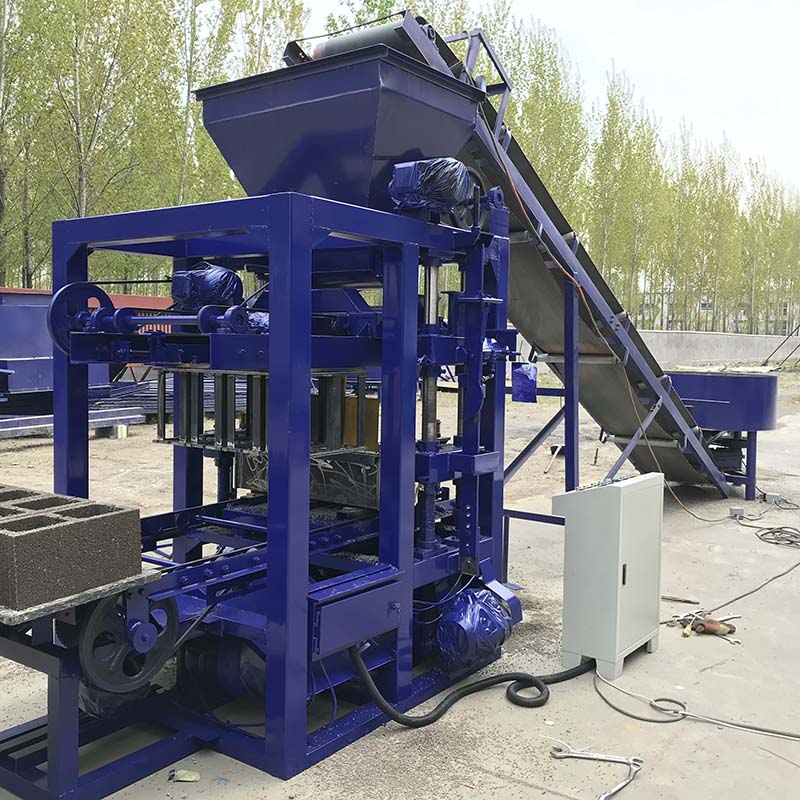
Image source:Aiwei block machine
Introduction
The construction industry in Kenya has witnessed significant growth in recent years, driven by urbanization and infrastructure development. As the demand for housing and commercial spaces continues to rise, the brick making industry plays a pivotal role in providing the essential building blocks. Brick making machines have revolutionized the way bricks are produced, making the process more efficient, cost-effective, and environmentally friendly. In this article, we delve into the various types of brick making machines in Kenya, exploring their features, benefits, and suitability for different scales of production.
1. Manual Brick Making Machines
Manual brick making machines are a fundamental entry point into the world of brick production. These machines are operated manually, requiring human effort to mold and compress the raw materials into bricks. While they may lack the automation and speed of higher-end machines, manual brick making machines have their place, particularly for small-scale businesses and rural areas with limited access to electricity.
Advantages:
- Affordable initial investment.
- Suitable for remote areas without consistent power supply.
- Simplicity of operation, requiring minimal training.
Disadvantages:
- Limited production capacity.
- Labor-intensive, leading to higher operational costs in the long run.
- Inconsistent brick quality due to variations in manual labor.
2. Semi-Automatic Brick Making Machines
Semi-automatic brick making machines strike a balance between manual and fully automatic machines. They involve a combination of manual labor and automation, resulting in higher production capacity and improved brick quality compared to manual machines. These machines typically include features like a mixing chamber, hydraulic system, and a conveyor belt for efficient material handling.
Advantages:
- Higher production capacity compared to manual machines.
- Improved brick quality due to standardized processes.
- Relatively lower operational costs compared to fully automatic machines.
Disadvantages:
- Requires skilled operators to ensure optimal performance.
- Still somewhat labor-intensive, though less than manual machines.
- Initial investment and maintenance costs can be higher than manual machines.
3. Fully Automatic Brick Making Machines
Fully automatic brick making machines are the pinnacle of modern brick production technology. These machines are designed to handle the entire brick manufacturing process automatically, from mixing the raw materials to molding, pressing, and stacking the finished bricks. They offer unparalleled production capacity, consistency in brick quality, and reduced dependency on manual labor.
Advantages:
- High production capacity, ideal for large-scale construction projects.
- Consistent and precise brick dimensions and quality.
- Minimal labor requirements, leading to significant cost savings over time.
Disadvantages:
- Higher upfront investment cost.
- Requires skilled technicians for maintenance and operation.
- Dependence on a consistent power supply.
4. Interlocking Brick Making Machines
Interlocking brick making machines have gained popularity in Kenya due to their unique design that allows bricks to interlock without the need for mortar or cement. These machines produce bricks with grooves and protrusions that fit together like puzzle pieces, creating stable and durable structures. Interlocking bricks are known for their sustainability and cost-effectiveness, making them a preferred choice for environmentally conscious builders.
Advantages:
- Eliminates the need for mortar, reducing construction costs.
- Faster construction process due to the ease of interlocking bricks.
- Enhanced thermal and sound insulation properties.
Disadvantages:
- Specialized design requires specific molds and machinery.
- Initial investment might be higher due to unique technology.
- Requires proper training for precise interlocking brick production.
5. Hydraulic Brick Making Machines
Hydraulic brick making machines utilize hydraulic pressure to compress the raw materials and form bricks. This technology offers precise control over the brick-making process, resulting in uniform brick dimensions and higher brick density. Hydraulic machines are known for their efficiency and ability to produce high-strength bricks suitable for load-bearing structures.
Advantages:
- High compression force leads to denser and stronger bricks.
- Versatile in terms of using various types of raw materials.
- Improved automation and control over the brick-making process.
Disadvantages:
- Higher initial investment due to complex hydraulic systems.
- Requires skilled operators for maintenance and operation.
- Reliance on a consistent hydraulic power source.
Conclusion
The brick making industry in Kenya has embraced various types of brick making machines, each catering to specific production requirements and technological preferences. From manual machines suited for remote areas to fully automatic machines powering large-scale construction projects, these machines have transformed brick production, making it more efficient and sustainable. The choice of a brick making machine depends on factors such as production scale, budget, available resources, and the desired level of automation. As Kenya continues its path of development, the diverse range of brick making machines will play a crucial role in shaping the nation’s built environment.
